Enjoying the outdoors and the surrounding natural beauty is a wonderful way to unwind. Additionally, hiking or walking through the mountains during a camping trip might help folks get some exercise. It also offers an opportunity to obtain some much-needed sleep. Moreover, by lowering tension and anxiety, it can enhance cognitive performance. Additionally, it can assist people in picking up new abilities like cooking outside or erecting a tent.
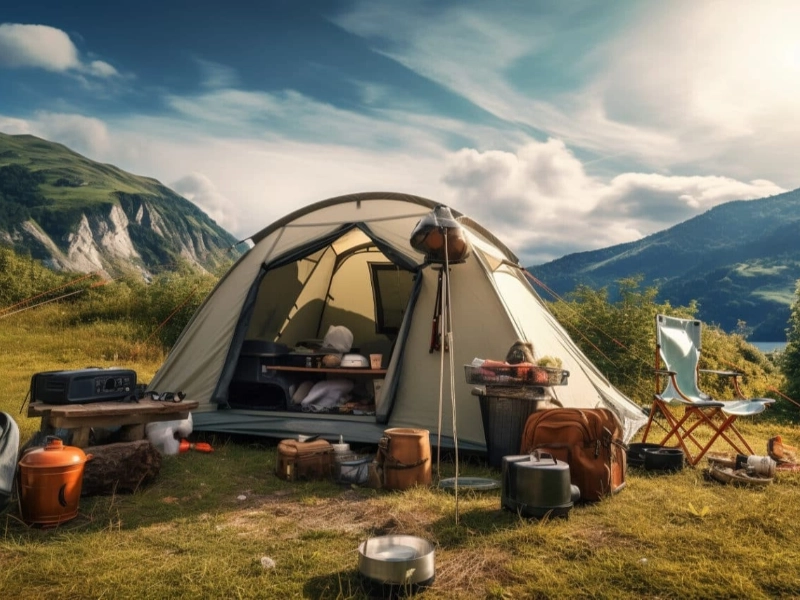
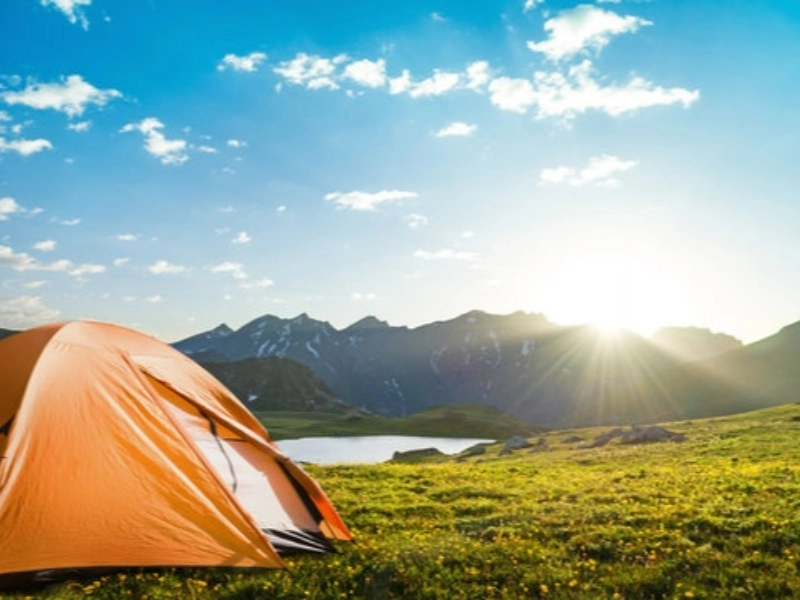 You are surrounded by nature when camping. Stress levels are lowered as a result, improving mental wellness. Additionally, research has demonstrated that spending time outside might lessen ruminating, which is another major contributor to depression.
Additionally, acquiring new skills like how to set up a tent or cook over an open flame is a common part of camping. This can foster a sense of accomplishment and self-sufficiency.
Camping is the ideal choice if you're seeking for a method to unwind and get away from it all. There's no better way to boost your mental health than with a little outdoor adventure, whether you're looking for a peaceful spot under the stars or a weekend away gone camping.
You are surrounded by nature when camping. Stress levels are lowered as a result, improving mental wellness. Additionally, research has demonstrated that spending time outside might lessen ruminating, which is another major contributor to depression.
Additionally, acquiring new skills like how to set up a tent or cook over an open flame is a common part of camping. This can foster a sense of accomplishment and self-sufficiency.
Camping is the ideal choice if you're seeking for a method to unwind and get away from it all. There's no better way to boost your mental health than with a little outdoor adventure, whether you're looking for a peaceful spot under the stars or a weekend away gone camping.
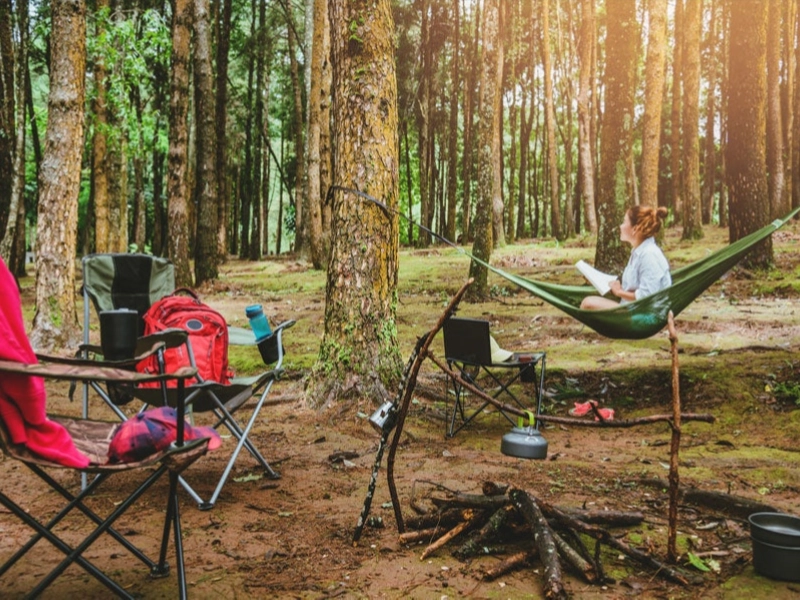 Our mental health improves when we spend time outside, according to studies. Camping is a fantastic way to take advantage of nature's many blessings and establish a new connection with it.
Successful camping involves collaboration, and it's a wonderful chance to strengthen relationships with your loved ones. It also motivates you to pick up new abilities like building a tent or lighting a fire. You feel more accomplished and self-reliant as a result of this.
Furthermore, being outside might enhance the quality of your sleep, which is good for your mood. Sleeping well will help you fight off weariness and melancholy. Natural light also aids in resetting our biological clocks, which facilitates nighttime sleep and wakefulness.
Our mental health improves when we spend time outside, according to studies. Camping is a fantastic way to take advantage of nature's many blessings and establish a new connection with it.
Successful camping involves collaboration, and it's a wonderful chance to strengthen relationships with your loved ones. It also motivates you to pick up new abilities like building a tent or lighting a fire. You feel more accomplished and self-reliant as a result of this.
Furthermore, being outside might enhance the quality of your sleep, which is good for your mood. Sleeping well will help you fight off weariness and melancholy. Natural light also aids in resetting our biological clocks, which facilitates nighttime sleep and wakefulness.
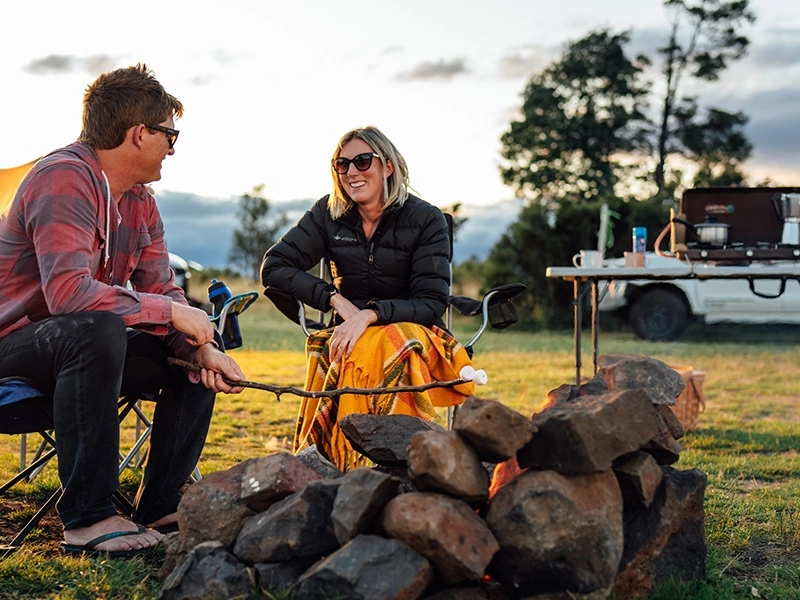 Hiking, fishing, stargazing, and other outdoor activities can be excellent ways to get some exercise, depending on the kind of camping you select. This can make you feel more accomplished and reduce stress, both of which are beneficial to your mental health.
Furthermore, research has demonstrated that spending time in nature lowers stress and anxiety. In actuality, spending even two hours a week in nature can have a big positive impact on your mental health. Fortunately, the majority of campers spend far more than that!
An experience that is restorative and revitalising is enhanced by the clean air, the sounds of the forest, and the absence of outside disturbances. The best part is that you may take use of all these advantages from the comforts of your own home.
Hiking, fishing, stargazing, and other outdoor activities can be excellent ways to get some exercise, depending on the kind of camping you select. This can make you feel more accomplished and reduce stress, both of which are beneficial to your mental health.
Furthermore, research has demonstrated that spending time in nature lowers stress and anxiety. In actuality, spending even two hours a week in nature can have a big positive impact on your mental health. Fortunately, the majority of campers spend far more than that!
An experience that is restorative and revitalising is enhanced by the clean air, the sounds of the forest, and the absence of outside disturbances. The best part is that you may take use of all these advantages from the comforts of your own home.
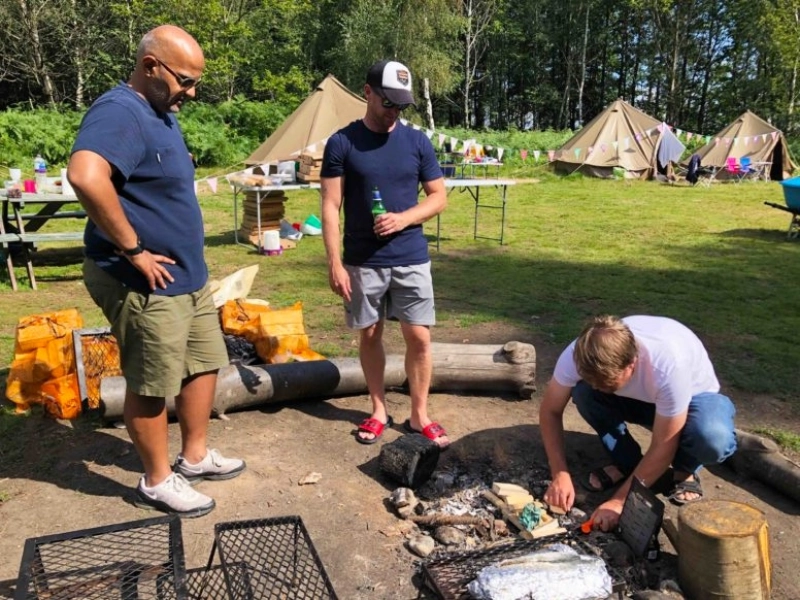 It has been demonstrated that being outside and in nature, like camping, reduces stress. It also promotes sun exposure, which is beneficial for raising vitamin D levels and lowering stress hormones.
According to one study, people's sleep cycles were more in line with the natural day-night cycle when they went camping without artificial light. They were less likely to feel sleepy when they did wake up and were more likely to wake up at a sensible hour as a result.
You can still reset your biological clock even if you are unable to camp. Simply go outside more frequently or switch off your electronics and lights early in the evening. By doing this, you can enhance your mood and mental health by getting more restful sleep and maintaining environmental awareness.
It has been demonstrated that being outside and in nature, like camping, reduces stress. It also promotes sun exposure, which is beneficial for raising vitamin D levels and lowering stress hormones.
According to one study, people's sleep cycles were more in line with the natural day-night cycle when they went camping without artificial light. They were less likely to feel sleepy when they did wake up and were more likely to wake up at a sensible hour as a result.
You can still reset your biological clock even if you are unable to camp. Simply go outside more frequently or switch off your electronics and lights early in the evening. By doing this, you can enhance your mood and mental health by getting more restful sleep and maintaining environmental awareness.